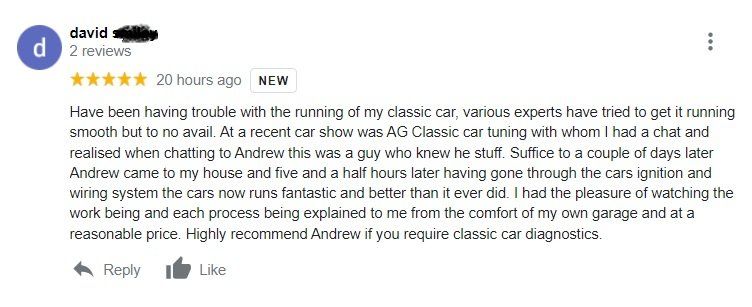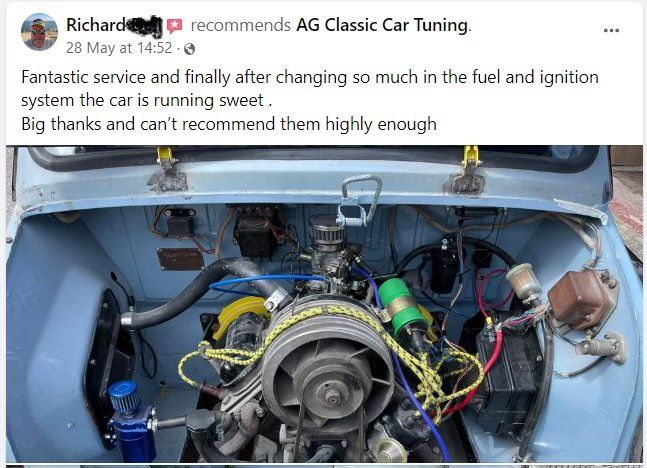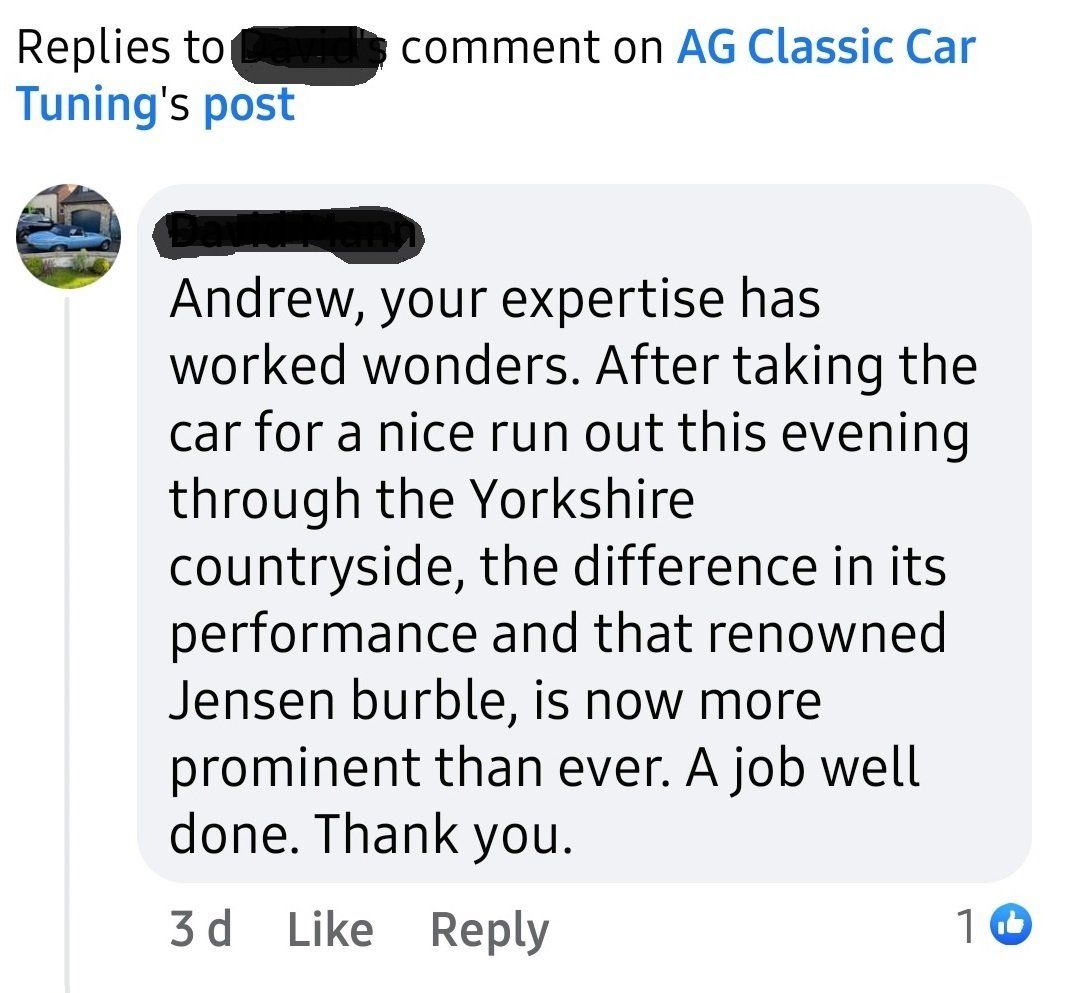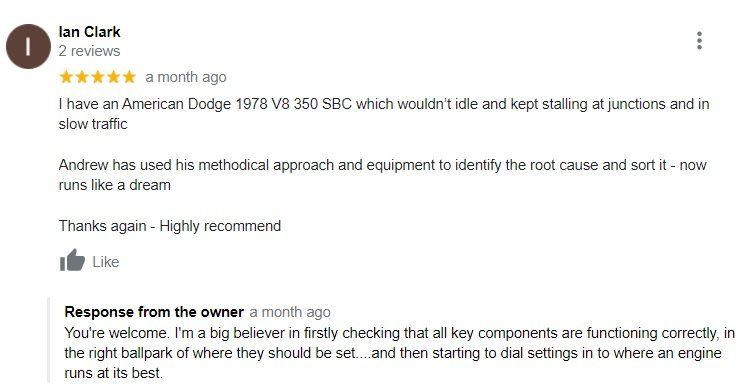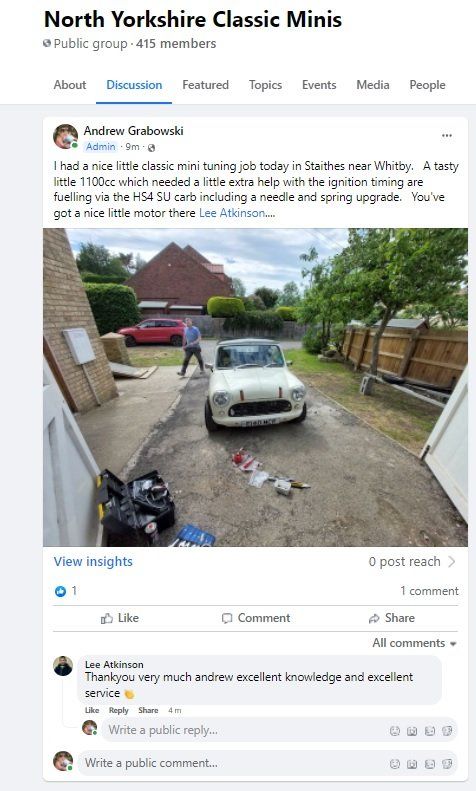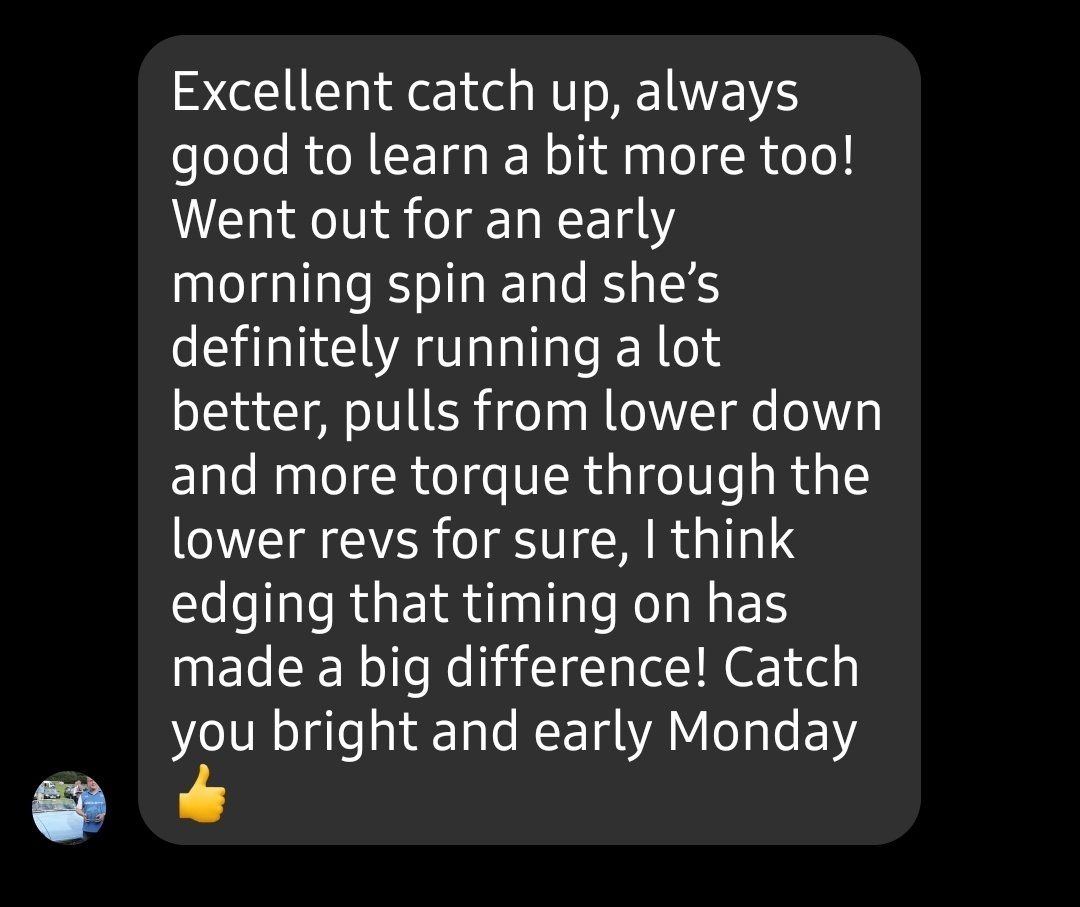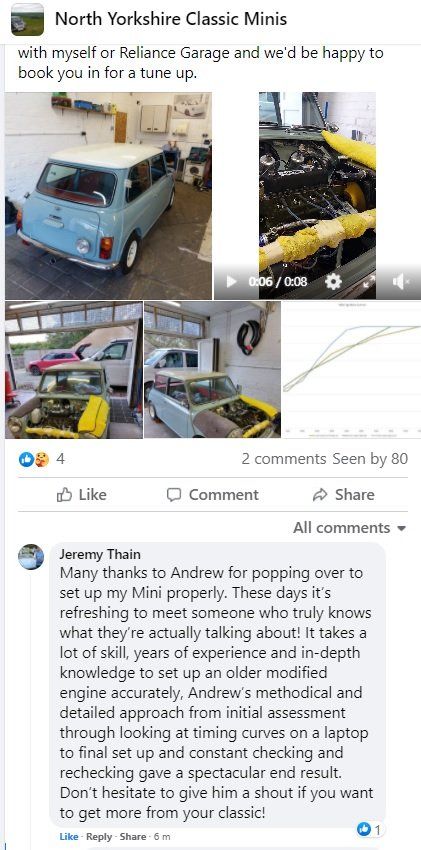On perhaps 75% of cars that I tune, I initially find that the ignition timing is a country mile away from what it should be. The worst documented case that I have encountered were an MGB and MGBGT for the same owner, on the same day. In both cases their ignition timing was in the region of 30 deg over advanced from where they should be. So I asked myself how long would it be before the engine suffered major failure? When and where would the failure have occurred? I dread to think.........
The below image is with a manifold sourced vacuum attached which added +20deg to the existing 40deg of static timing. The resulting idle 60 deg BTDC!!!
Correct timing should have been approx 10 to 12 deg static, and resultant dynamic at idle of 32 deg BTDC (with vacuum connected).
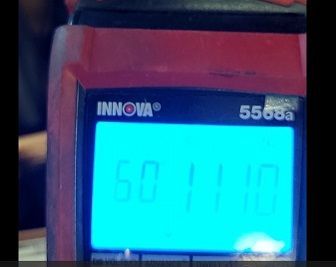
The risk of Borewash
As you may know, petrol has many similarities to a typical solvent. In fact when overhauling or cleaning engine components many engineers use a splash of petrol to help lift and break down old oil residues making the oil residues more mobile and easier clean.
Borewash is a scenario which occurs when excess fuel enters the engine cylinders, and allows the natural boundary lubrication to be stripped away from the cylinder walls. The result is that the normal fine layer of lubrication between piston rings and the cylinder walls is lost, friction begins to increase wearing away at both piston rings and the cylinder walls. Cylinder efficiency is becomes lost, compression values drop and piston ring blow by occurs. The excess petrol then spills by the piston rings and into the general engine oil, depleting the engine oils lubrication performance.....I'm sure you can then imagine the continued journey towards engine damage.
Excessively rich mixture values, leaking needle valves, high fuel pressure and general poor states of tune and combustion timing......can all cause borewash to occur.
Don't believe me???
Take a moment to Google....'causes and symptoms of borewash'...&.....'how to avoid borewash?
'
Below is an example of a 1960's Volvo P1800, however it is equally applicable to any classic car. When your engine starts to shake like pic 2, or sound like pic 1. Please don't just think that it's normal because it's an old car....it isn't normal!! One or more things are clearly out of tune and need rectifying before they foul, break or damage other components. Get it sorted ASAP!!
Now compare with the below 2 videos to the above video. Once the ignition timing was set, the carburation cleaned and tune, plus a few small issues resolved.....the before and after videos go on to show a 'night and day' type of contrast and difference.
I spend many of my weekends attending classic car shows, gatherings and events in the North of England. As well as supporting the various charities which receive funding from the event, I of course have the opportunity to wonder round and speak with classic car owners. The time, effort energy and attention to detail which they put into presenting their cars is quite astonishing really. Every nut and bolt gleaming and polished, every square inch of the paintwork cleaned, waxed and top coat finish waxed.
The one part which amazes me is that when I talk to them and ask about the engine, ignition timing or carburation it clearly doesn't receive anything like the same level of care and attention that the body work or interior does. Quite often I hear that they don't touch anything, because it starts, stops and seems to run ok....so I leave it be. I'm biased on the topic, but my foundation for holding such a bias is because cars were by inherent design made to be driven. It means that all aspects which make them safe, reliable and able to be driven need checking regularly. Not just polished regularly to look nice at shows.
I've never known a car fail to start because it hadn't been polished!! But I've known many fail to start pr break down on a journey because they had a poor electrical earth, fouled carb, ignition timing completely out, wrong coil etc etc.
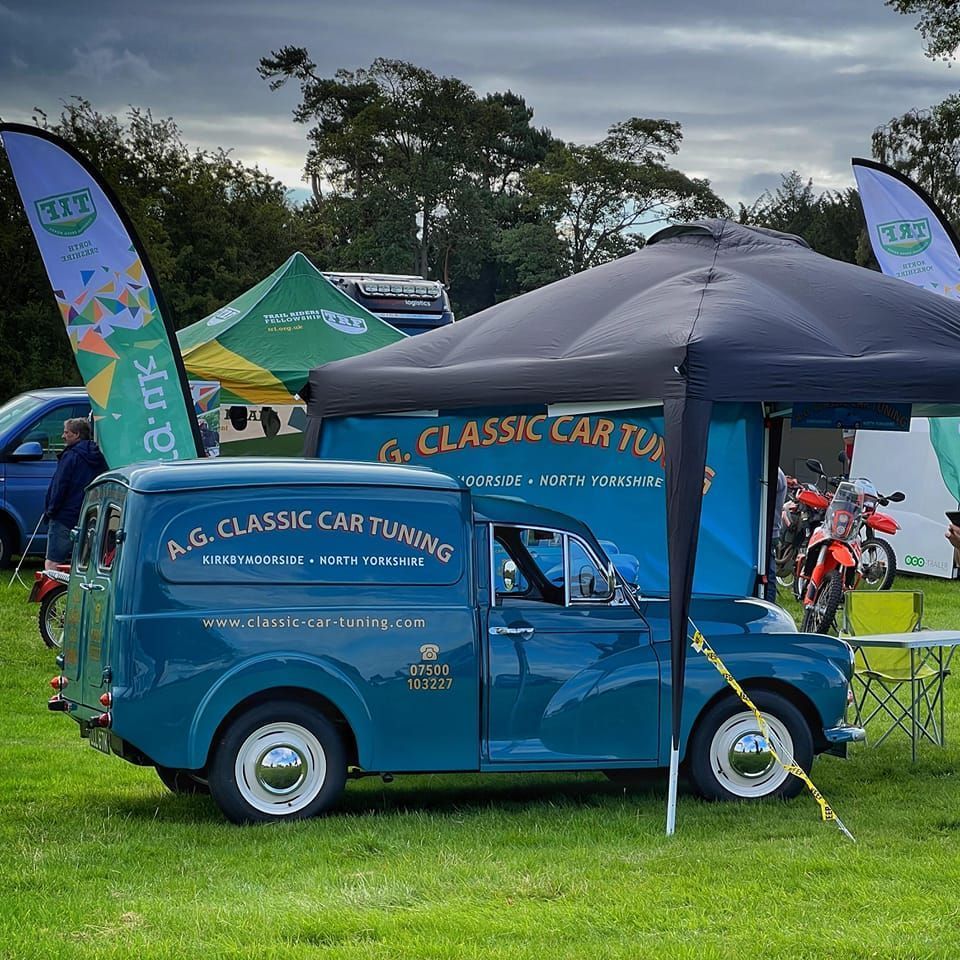
The other angle is that many classic car owners can have a false impression that because their car is 40, 50, 60+ years old....that's why it runs a bit lumpy, struggles to start, won't make it up certain hills in 3rd or 4th gear. Reality is that they may never have truly known how well their car, or that model of car should really drive. Below is a great example of a Google Review left after his Morris Traveller had been in with us for a Health Check and Tune.

We had no idea that this gentleman had owned 8 Morris Travellers previously, so it was really satisfying to hear that our health check and tuning had brought out the very best from this his 9th car of the same spec. But also saddening at the same time to hear that, perhaps his prior 8 had never really run as well as they could have. This example is only a 1098cc Morris Traveller, and the owner could feel the improvement over his prior 8 owned and decided this time he was going to take on a hill that he'd never managed before in 4th gear!!
Here are a few more reviews and feedbacks as received from 2, 4, 6, 8 and 12........if the difference can be felt from a very simple 1098 Morris Traveller, just imaging the difference which your car could feel whilst making the engine run, just as good as you present the car visually??
List of Services
Time to get in touch?
Thank you for contacting us.
We will get back to you as soon as possible
Please try again later
Address: Kirkbymoorside, North Yorkshire YO62
andrew@classic-car-tuning.com
Tel 07500 103227
(Not before 7am or after 7pm UK time)
Thank you
All Rights Reserved | AG Classic Car Tuning


